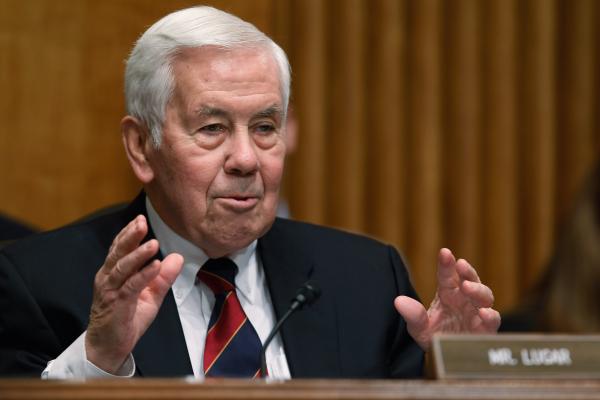Sen. Richard Lugar (R-IN) was defeated for renomination yesterday in the Indiana Republican primary. During 35 years in the Senate, Lugar had built a reputation as a conservative, but one who was willing to work across the aisle, especially on issues of foreign policy and nuclear non-proliferation. That willingness became a major attack point for his opponent, State Treasurer Richard Mourdock, who pledged to end attempts at bipartisanship by pushing a more conservative agenda. “I have a mindset that says bipartisanship ought to consist of Democrats coming to the Republican point of view,” he said this morning.
Lugar’s concession statement was unyielding:
"If Mr. Mourdock is elected, I want him to be a good Senator. But that will require him to revise his stated goal of bringing more partisanship to Washington. He and I share many positions, but his embrace of an unrelenting partisan mindset is irreconcilable with my philosophy of governance and my experience of what brings results for Hoosiers in the Senate. In effect, what he has promised in this campaign is reflexive votes for a rejectionist orthodoxy and rigid opposition to the actions and proposals of the other party. His answer to the inevitable roadblocks he will encounter in Congress is merely to campaign for more Republicans who embrace the same partisan outlook."
Here are a few of today’s reactions.
Read the Full Article

